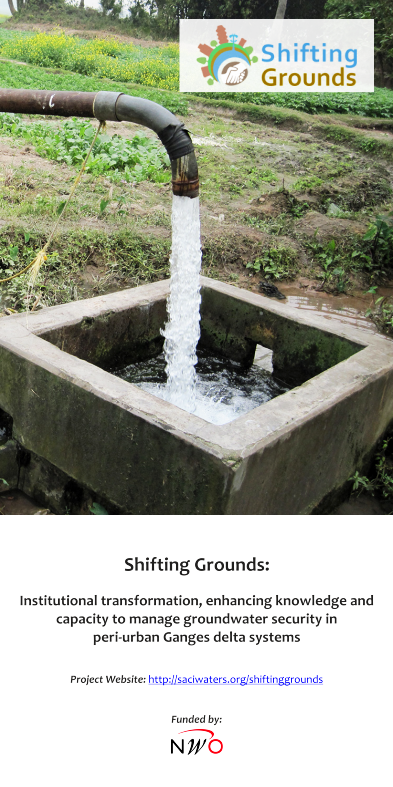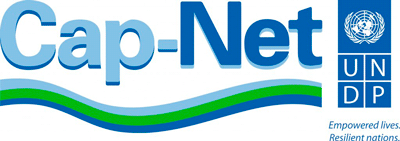About the Project
The Shifting Grounds project aims to build knowledge and capacity among local actors to support a transformation process in peri-urban delta communities in Bangladesh and India for a pro-poor, sustainable and equitable management of groundwater resources across caste/class and gender. This will be based on an improved understanding of the dynamic interplay between local livelihoods, the groundwater resource base, formal and informal institutions and links with nearby urban centres in Khulna and Kolkata. These two cities provide a good basis for an institutional comparison, being part of the same Ganges delta system, yet located in different countries.
Detailed study on the emerging issue of peri-urban institutions for groundwater management is linked to a structured process that seeks to strengthen the negotiation capacities of local stakeholders. These capacity building and development activities are rooted in the Negotiated Approach, which has been used by civil society organizations to facilitate the involvement of local users in river basin management. This approach is further developed for application in groundwater management. Novel supporting tools and techniques, including serious gaming and game theory, multidimensional (ground) water poverty assessment, and interactive grounded-theory analyses, are explored for their utility in facilitating negotiation processes. Participatory monitoring and evaluation of project interventions is used to ensure learning for both science and policy-making.
Funded by the Netherlands Organisation for Scientific Research (NWO), Shifting Ground project is executed by group of academicians, researchers and civil societies from north and south. Delft University of Technology (TU Delft) leads the consortium based on theirexpertise in the area of actor modelling and systems analysis, serious games, and the experience in support of water policy in theNetherlands as well as developing countries. Two southern research partners are involved for the execution of the project. SaciWATERs, based in India, is the regional coordinator for the project and is responsible for the socio-economic system mapping the index-based integrative approach and the grounded theory research components. Bangladesh University of Engineering and Technology (BUET) contribute its expertise in groundwater modelling to analyze the groundwater systems. Both ENDS, an independent non-governmental organisation (NGO), based in Netherlands coordinates and develops the capacity building activities under the Negotiated Approach that provide the link between academic research activities and capacity building, using its experience with the Negotiated Approach in several developing countries such as Costa Rica, India, Mexico, Peru, South Africa, Bangladesh and Indonesia. Two local civil society partners support these activities at the project sites in Khulna and Kolkata: Jagrata Juba Shangha(JJS), Bangladesh and The Researcher, India.
Project outcomes
A known constraint for both periurban Khulna and Kolkata is the ineffectiveness of many of the formal rules, regulations and policies, in governing access and use ofgroundwater resources. The research undertaken will help to identify different possible configurations and feasible pathways for a more sustainable use of groundwater resourcesby various competing users. These insights and negotiated approach workshops will help government officials and community representatives, to be more aware of theirlocal needs and concerns, and of possible institutional structures that might help achieve a fair balancebetween the varied and conflicting needs and interest of peri-urban groundwater users.
The project will further deliver empirically grounded insights into the co-evolution of groundwater, socio-economic and institutional systems and peri-urban communities in Kolkata and Khulna.





Follow Us